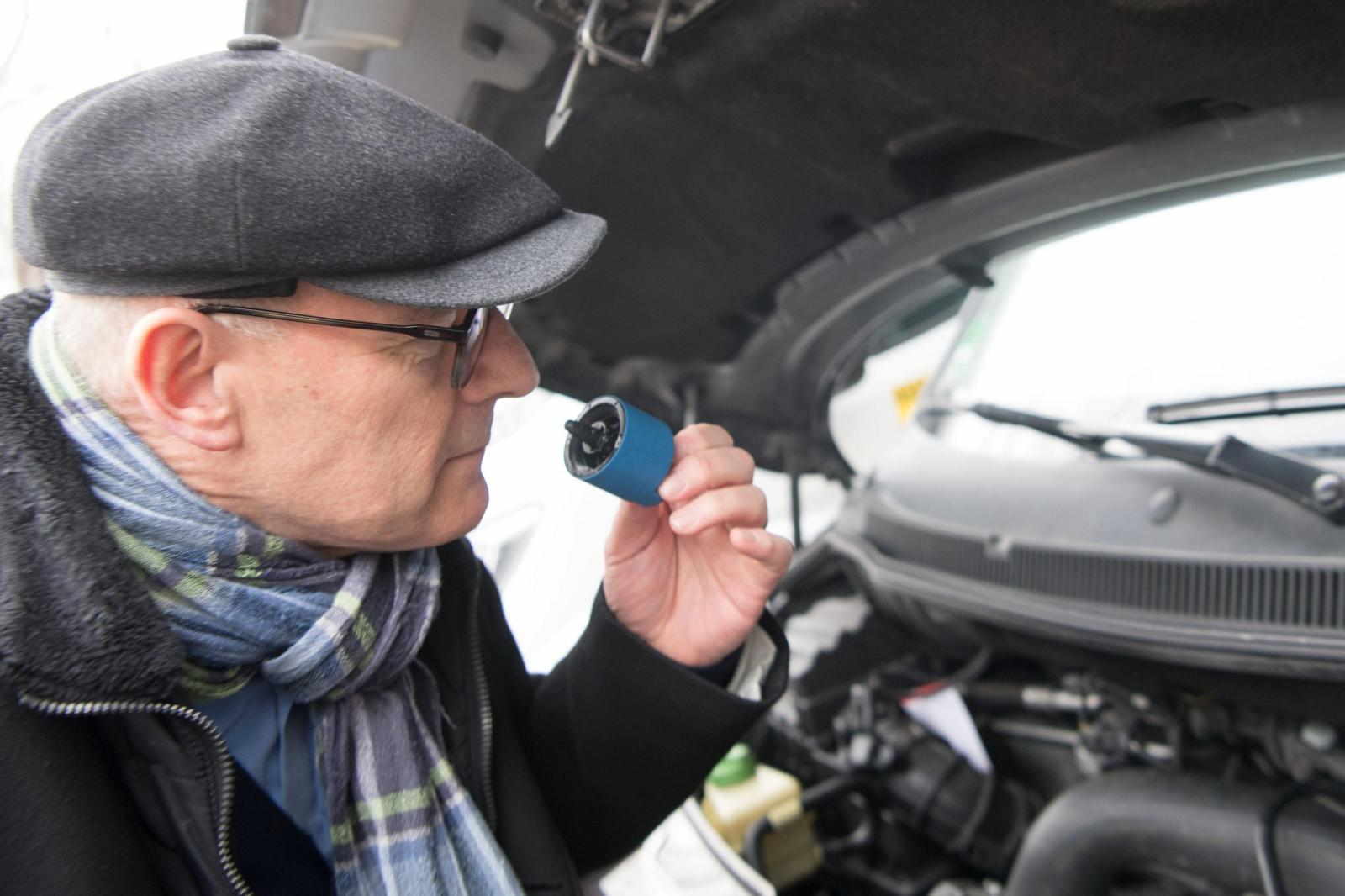We have heard many people ask, “Why does my truck smell like rotten eggs?”
If you are baffled about this lingering, nasty smell in your truck, then it may be quite a frustrating dilemma to deal with. After all, no one is too keen on smelling such a strong and offensive smell.
But if this odor permeates in your truck as you drive, something reminiscent of rotten eggs (which is actually sulfur), then it poses some problems that need to be addressed.
We’ll cover what exactly is the reason behind such a smell and what you can do about it. Let’s get started!

Contents
Why Does My Truck Smell Like Rotten Eggs
The straight answer to this question is that the smell originates from the small amount of sulfur or hydrogen sulfide in the fuel.
Normally, hydrogen sulfide converts into sulfur dioxide, which is odorless. But when there is damage in your vehicle’s exhaust or fuel system, then this leads to a foul odor similar to a rotten egg smell.
What this means is that any deposits or by-products from an incomplete combustion of the gasoline lead to this undesirable smell. Such failure is due to various system failures.
Yet, if you only observe the smell for a short time after your engine goes on a high revolution, then you should not be concerned about it at all. On the other hand, this rotten egg smell that persists requires further investigation considering the potential serious problems behind it.
Reasons Why Your Truck Smells Like Rotten Eggs
As we have mentioned earlier, your truck smells like rotten eggs because of multiple reasons. Here are some of them.
1. Catalytic Converter Issue
This is the most likely reason behind the foul smell in your truck. When the catalytic converter is broken, it can prevent the gas from being processed correctly, which then leads to a bad smell.
When functioning properly, the catalytic converter, which makes up the emission system, transforms small amounts of the hydrogen sulfide into sulfur dioxide. It should be odorless when the converter works right. This component also reduces harmful emissions as exhaust gasses are converted into a harmless gas.
So, if you notice a foul odor similar to a rotten egg smell, then you may want to take a look at your catalytic converter. It may be time to get it replaced. But if after the diagnosis you did not see any issue, then it could be another component that’s the culprit.
2. Fuel Filter Or Fuel Pressure Sensor Issues
Another reason behind this rotten egg smell is a fuel pressure sensor problem. This component regulates your vehicle’s fuel use. So, when it fails, the catalytic converter gets clogged up with oil. When there is oil build up, the converter is unable to process exhaust byproducts. These byproducts then exit your vehicle right through the tailpipe, producing a rotten egg smell.
If this is the source of the problem, then you need to get your fuel pressure regulator fixed. You can either replace the fuel filter or the regulator as a solution. When your fuel filter is damaged, you can observe the same issues as having a poor fuel pressure sensor. What this means is that there is a high amount of sulfur deposits being combusted in the catalytic converter.
3. Transmission Fluid Problems
And lastly, if you skipped transmission flushes, then there is a high likelihood of the fluid leaking into various vehicle systems. This leads to a rotten egg odor. The issue is common with manual cars, which is why you need to follow through your car manufacturer’s recommendation for changing the transmission fluid.
How to Remove Rotten Egg Smell
Now that you know the potential reasons behind this rotten egg smell, you can take action on what part needs to be fixed to solve this problem.
Whether it is the fuel filter, fuel pressure regulator, catalytic converter, or transmission fluid, you can either replace or have them fixed to completely eliminate the smell.
You need to pay close attention to this problem since it can also indicate more serious concerns. When not addressed properly, your vehicle is at risk of developing further issues that can be a more costly repair in the future.
Read More: Common Volvo D13 Egr Cooler Problems
Final Thoughts
Mechanical problems may be to blame when you observe a rotten egg smell in your vehicle. But it is not just a foul odor – other bigger problems may occur when you fail to address this smell. This is why it is best to have this issue addressed correctly by detecting the cause of the problem and taking action.
First, inspect the catalytic converter to make sure there is no damage to it. If you observe that it is either broken or jammed, then you can have it replaced. It would not only resolve the nasty smell but could prevent high engine temperatures that may result in a car fire.
Then, you should check your fuel pressure sensor in case the problem is not with the catalytic converter. Oil build-up can cause the smell, so you may need to replace the sensor. Replacing the filter is also an option if the sensor appears to be fine.
Last but not least, make sure you are on schedule with your transmission fluid flush. Once the fluid leaks into various systems in the engine, it can also cause this rotten egg smell. This is why it is very important to not miss the required time to flush out and change the transmission fluid, so you can prevent this issue, in addition to further problems in the future.
So there you have it – the three most common causes of rotten egg smell in the truck, as well as solutions to this issue. A simple inspection, diagnosis, and replacement of the affected parts should address the issue once and for all.